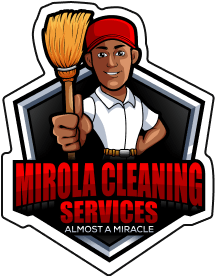Learning how to safely handle cleaning chemicals is a major concern for everyone, as cleaning products are an integral part of daily life. We use them to scrub toilets, mop floors, disinfect surfaces, and polish glass. At home and at work, these chemicals make our environments healthier and more pleasant. But while they are useful, they can also be dangerous if not handled correctly.
From skin burns to lung injuries, accidents linked to improper use of cleaning products happen every day. The good news is that most of these accidents are preventable. Learning how to safely handle cleaning chemicals is not complicated. With a few simple habits, you can protect yourself, your family, or your staff.

Why safety with cleaning chemicals is so important
You might think cleaning products are harmless because you can buy them in any store. But many contain ingredients that react when mixed, release harmful fumes, or cause injuries if they touch skin or eyes.
Here are real-life examples that show why learning how to safely handle cleaning chemicals matters:
- In 2019, a restaurant manager in Massachusetts collapsed and died after inhaling toxic fumes from bleach mixed with an acidic cleaner. Thirteen other staff members needed hospital care.
- During the COVID-19 pandemic, several families in China were hospitalized with chlorine poisoning after mixing bleach with toilet cleaners, thinking it would “kill more germs.” (PMC)
- Research shows professional cleaners exposed to chemical sprays daily have much higher risks of asthma and lung irritation. One housekeeper described the long-term exposure as “like smoking a pack of cigarettes every day.” (Le Monde)
These aren’t rare stories. They prove that cleaning products are helpful only when handled with care.
Everyday rules for how to safely handle cleaning chemicals
The good news is you don’t need special training to stay safe. You only need to follow some straightforward rules every time you clean.
1. Read the label before use
The first step in how to safely handle cleaning chemicals is always reading the label. Labels tell you the right amount to use, how to dilute safely, and what hazards to avoid. More is not better. Doubling the amount of product doesn’t clean faster—it only increases risk.
2. Never mix cleaning products
Mixing chemicals is one of the biggest mistakes people make. Bleach and ammonia create chloramine gas, which can damage your lungs in minutes. Bleach and acidic cleaners like vinegar or toilet bowl liquid release chlorine gas, which is deadly in high amounts. Always use one product at a time.
3. Keep the air flowing
When cleaning, open windows and doors or switch on a fan. Good ventilation keeps fumes from building up. If you’re cleaning in small spaces like bathrooms, step out frequently for fresh air.
4. Protect your skin and eyes
Many chemicals can cause burns or rashes. Always wear gloves. If you’re working with strong products, wear goggles too. If you use sprays often, a mask reduces what you breathe in.
5. Store and label safely
Never pour cleaning products into bottles meant for food or drinks. Someone could mistake them for water or soda with deadly results. Keep products in their original containers with labels intact. Always store them out of reach of children and pets, preferably in a locked cabinet.
How to safely handle cleaning chemicals at work
For businesses, the risks are even higher. Employers are responsible for protecting staff from harm. That means more than just buying cleaning supplies; it means teaching workers how to use them properly.
- Training matters: Everyone who handles chemicals should know the dangers and first aid steps. In many workplace accidents, the cause is lack of training.
- Safer choices: Where possible, use eco-friendly or less toxic products. They clean effectively but reduce risks to health.
- Emergency planning: Have a clear response plan for spills or accidental exposure. Staff should know who to call and what immediate steps to take.
- Health monitoring: Watch for signs of overexposure. If workers develop coughs, headaches, or skin irritation, review the chemicals being used and safety practices in place.
By applying these steps, workplaces protect both employees and customers.
Quick checklist: how to safely handle cleaning chemicals
Before using any product, run through this short checklist:
- Did I read the label and follow the directions?
- Am I using only one cleaner at a time?
- Is the room well-ventilated?
- Do I have gloves or goggles on?
- Are all products properly labeled?
- Are children and pets kept away from the area?
- Do I know what to do if something spills or splashes?
If you can answer “yes” to each point, you’re using cleaning chemicals the safe way.
What to do if exposure happens
Even when you follow precautions, accidents can occur. Knowing how to react quickly reduces harm.
- Skin contact: Rinse immediately with clean water for at least 15 minutes. Remove contaminated clothing.
- Eye exposure: Rinse eyes with cool running water right away. Keep rinsing for 15–20 minutes.
- Inhalation: Move to fresh air immediately. If breathing is difficult, seek medical help.
- Swallowing: Do not make the person vomit. Call poison control or emergency services right away.
Fast action makes a difference. Always keep emergency numbers where you can reach them easily.
Conclusion
Cleaning products make our homes and workplaces healthier, but only when handled correctly. Without care, the same products can harm the people using them.
Learning how to safely handle cleaning chemicals means:
- Always reading labels
- Never mixing products
- Ventilating your space
- Wearing protection
- Labeling and storing correctly
- Training staff at work
- Knowing what to do in emergencies
These steps are simple, but they save lives. The next time you reach for a cleaning product, pause for a moment. Make sure you’re handling it the safe way.
